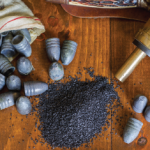STOCKHOLM/LONDON (Reuters)—Two Americans and a Briton won the 2018 Nobel Prize for Chemistry on Wednesday for harnessing the power of evolution to generate novel proteins used in everything from environmentally friendly detergents and biofuels to cancer drugs.
The fruits of this work include the world’s top-selling prescription medicine – the antibody injection Humira sold by AbbVie for treating rheumatoid arthritis and other autoimmune diseases.
Frances Arnold of the California Institute of Technology, George Smith from the University of Missouri and Gregory Winter of Britain’s MRC Laboratory of Molecular Biology were awarded the prize for pioneering science in enzymes and antibodies.
Arnold, only the fifth woman to win a chemistry Nobel, was awarded half of the nine million Swedish crown ($1 million) prize while Smith and Winter shared the other half.
“Some people breed cats and dogs. I breed molecules,” Arnold told Reuters after learning of the award, which she said had come as a complete surprise.
The Royal Swedish Academy of Sciences said Arnold had transformed science by using the principles of evolution – genetic change and selection – and to evolve new types of proteins very fast.
Arnold is the second woman to win a Nobel prize this year after Canada’s Donna Strickland shared the physics award on Tuesday.
Her research on enzymes – proteins that catalyze chemical reactions – laid the bedrock for the development of better industrial chemicals and pharmaceuticals.
“There are enzymes now in detergents that we use in our dishwasher and have been evolved by this process. There are also enzymes that can create new types of biofuels or that catalyze the formation of building blocks for new medicines,” said chairman of the Nobel chemistry committee Claes Gustafsson.
“All this you can do with enzymes that Frances Arnold has developed.”
Paradigm Shift
Smith developed a method using a virus that infects bacteria to produce new proteins while Winter used the same phage display technique to engineer the evolution of antibodies, with the aim of producing more effective medicines.
Humira, or adalimumab, was the first drug based on Winter’s work to win regulatory approval in 2002. It has since gone on to become a blockbuster, with sales last year of $18 billion.
“With this medicine, far fewer people with rheumatoid arthritis are forced to use a wheelchair,” said immunologist Dan Davies of the University of Manchester.
Other antibody drugs at the cutting edge of medicine use the same technology, including a number of treatments that have proved highly effective against cancer.
Winter said he was surprised by the huge commercial success of antibody drugs, which he put down in large part to the high prices that drug companies have managed to charge for them.
“I had no idea they would be so commercially successful . . . it was a complete paradigm shift,” he told reporters in a conference call. “Antibodies as a pharmaceutical product are still growing great guns.”
The prizes for achievements in science, literature and peace were created and funded in the will of Swedish dynamite inventor and businessman Alfred Nobel and have been awarded since 1901.
For the first time in decades, the Nobel line-up did not feature a literature award after a rift within the Swedish Academy over a rape scandal involving the husband of a board member left it unable to select a winner.
The science and peace prizes are selected by other bodies. Chemistry is the third of this year’s Nobel Prizes after the winners of the medicine and physics awards were announced earlier this week.


